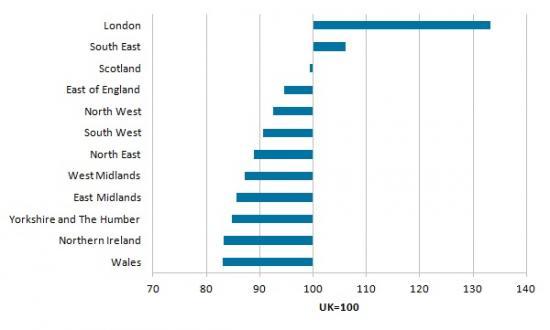Businesses take action to improve productivity and competitiveness
21st February 2018

A survey of more than a thousand businesses in the Highlands and Islands has shown that almost all of them (95%) have taken action in the past 12 months to become more productive and competitive.
This is according to the findings of the latest business panel survey published today (Wednesday 21 February) ) by Highlands and Islands Enterprise (HIE).
The most common step taken by businesses (71%) is encouraging staff to submit their ideas for improvement. Others include introducing new practices (69%), investing in premises or equipment (67%), and collaborating with other businesses (65%).
According to the latest ONS data, productivity in Scotland has traditionally lagged that of the UK, although the gap has narrowed. The productivity challenge for the Highlands and Islands is more acute, reflecting the dominance of small firms in the regional economy, a lower share of high paying sectors, a lack of private sector head offices, and a strong service sector structure.
Just under three-quarters (72%) of businesses that had taken action said this had enhanced their overall productivity. Other benefits included attracting new business (67%) and staff feeling more engaged (66%). The main challenges faced in implementing changes were lack of time and attracting the right skills into the workforce.
In line with previous surveys, the majority (79%) of respondents reported good (41%) or steady (38%) performance over the past year. More than three quarters (77%) are optimistic about their prospects for the next 12 months and 88% anticipate growth (41%) or stability (47%) in the next year or two.
Most businesses again reported stability in levels of employment, staff training, working hours and exports. However, while two fifths reported an increase in sales and turnover, only a quarter (24%) saw a corresponding uplift in profits.
Recognition of the importance to the Scottish economy of free movement of people across the EU continues to grow, increasing from 75% to 84% over the past six months. Two fifths (40%) felt this aspect was important to their own business. Around eight in ten (78%) businesses recognise the importance of membership of the European single market to the Scottish economy.
Nine in ten (89%) businesses in the region see access to the European single market and/or free movement of people as important to the Scottish economy, and 64% to the operation of their business.
Carroll Buxton, director of regional development at HIE, said:
"Raising productivity levels in an increasingly competitive economic environment is very important to sustain employment, income impacts and profits. This will help to encourage further business investment and spending, both of which are critical for sustainable economic growth.
"We support a range of interventions targeted at helping businesses to improve their productivity and competitiveness, including for example our support for innovation and our workshops on targeting overseas markets.
"The results of the panel survey research are critical in helping ensure we are continuously aware of the challenges and opportunities facing businesses in our region, and can help tailor support accordingly."
HIE has commissioned the Business Panel Surveys since July 2016. Fieldwork for this latest study was carried out between 25 October and 29 November 2017, using telephone interviewing. A total of 1,001 businesses and social enterprises across the Highlands and Islands participated. Findings are weighted to ensure a representative sample of the regional business base in terms of geographical location, organisation size and sector.
Figure 1: Labour productivity (gross value added per hour worked) by NUTS1 region, unsmoothed, current prices, 2016
Figure 1 shows the relative labour productivity performance of the 12 UK regions and countries relative to the UK average for 2016 (following the Nomenclature of Territorial Units for Statistics (NUTS)1 classification). Gross value added (GVA) per hour worked was highest in 2016 in London, at 33% above the UK average. The only other region with productivity above the UK average was the South East of England, with productivity 6% above the UK average.
In Scotland, productivity in 2016 was marginally below the UK average, whilst in Wales and Northern Ireland, productivity was 17% below the UK average. The regions of the north and Midlands of England (North East, North West, Yorkshire and The Humber, East Midlands and West Midlands) had productivity levels between 7% to 15% below the UK average.



